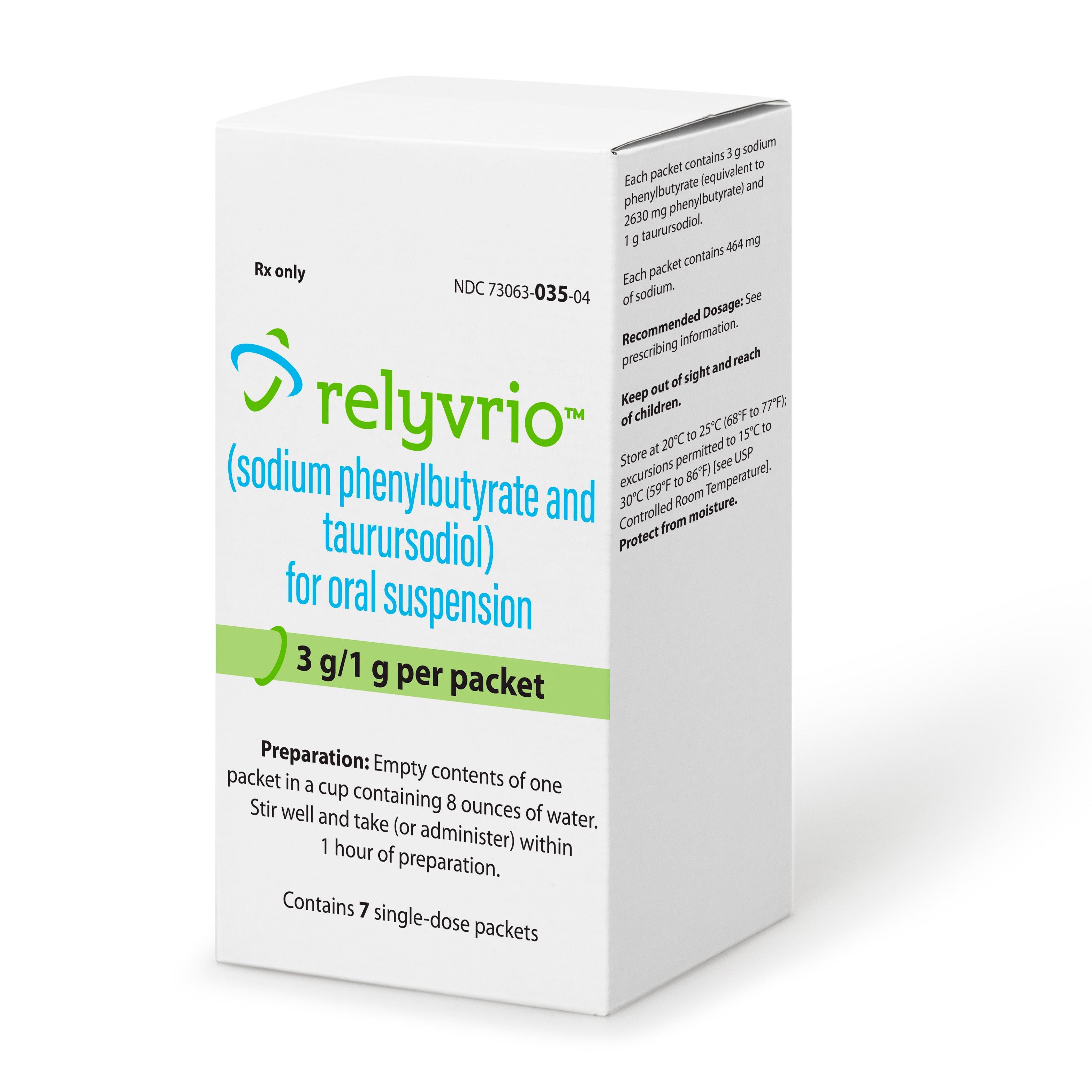Maker of much-debated ALS drug says it may stop selling it after study showed it didn't work
The maker of a much-debated drug for Lou Gehrig's disease said it failed to help patients with the fatal disease

The maker of a much-debated drug for Lou Gehrig’s disease said Friday its therapy failed to help patients in a large follow-up study, but stopped short of committing to follow through on a prior pledge to pull the drug from the U.S. market.
The Food and Drug Administration approved Amylyx Pharmaceuticals’ Relyvrio in September 2022, following a years-long advocacy campaign by patients with amyotrophic lateral sclerosis, or ALS, a fatal muscle-wasting disease.
Amylyx said Friday in a statement it will discuss its plans for Relyvrio with patients and the FDA, which “may include voluntarily withdrawing” the drug.
The company's latest study showed that the drug did not slow the disease compared with a dummy treatment. The drug also failed to show improvement on any secondary measures, such as muscle strength.
Amylyx’s medication is part of a string of drugs for deadly, degenerative diseases that have won FDA approval in recent years despite questionable proof that they work.
The 2022 approval was mainly based on results from one small, mid-stage study that was criticized by some of the agency’s own internal scientists. An outside committee of experts also voted against the drug initially, before being swayed to back it at a follow-up meeting requested by patients. At the time, Amylyx noted it was continuing a larger follow-up study of more than 600 patients that would provide further data on the drug.
In a highly unusual move, company executives at that meeting told FDA regulators they would voluntarily pull their drug from the market if the study didn’t confirm that it helps. That commitment seemed to play a key role in convincing FDA's advisers to vote in favor of the drug's approval, despite questionable data.
The FDA has no formal process to quickly force the drug off the market. That’s because regulators granted Relyvrio full approval, rather than preliminary approval, which is often used for promising but unproven drugs for diseases that are hard to treat.
Amylyx’s drug did not qualify for that type of approval because its studies are mostly based on patient questionnaires and other data that FDA does not use to expedite drug approvals.
At the time of the decision the FDA officials explained that “regulatory flexibility” was appropriate for approving Relyvrio, “given the serious and life-threatening nature of ALS and the substantial unmet need.”
In the months before the decision the FDA faced intense pressure from ALS patients, advocates and members of Congress.
Relyvrio comes as a powder that combines two older drugs: a prescription medication for liver disorders and a dietary supplement associated with traditional Chinese medicine.
Amylyx faced criticism for pricing the drug at $158,000 for a year’s supply. Sales have been lackluster since the drug launch in late 2022, with some patients discontinuing the medicine after only a few months.
Shares of Cambridge, Mass.-based Amylyx Pharmaceuticals Inc. plunged more than 83% Friday morning.
___
The Associated Press Health and Science Department receives support from the Howard Hughes Medical Institute’s Science and Educational Media Group. The AP is solely responsible for all content.
Bookmark popover
Removed from bookmarks